As people spend more time online—now 30 hours per week on average in most countries—concerns about digital privacy have also grown. Two-thirds of nationals say the internet in their country should be more tightly regulated to protect internet users’ privacy, up from 56% in 2017. Jordanians reported the largest increase in the desire for such regulation—up 26 percentage points since 2017—followed by Emiratis and Egyptians (up 18 and 17 points, respectively). Qatar, on the other hand, saw a 20-point drop in the share of nationals who want more regulation to protect internet users’ privacy.
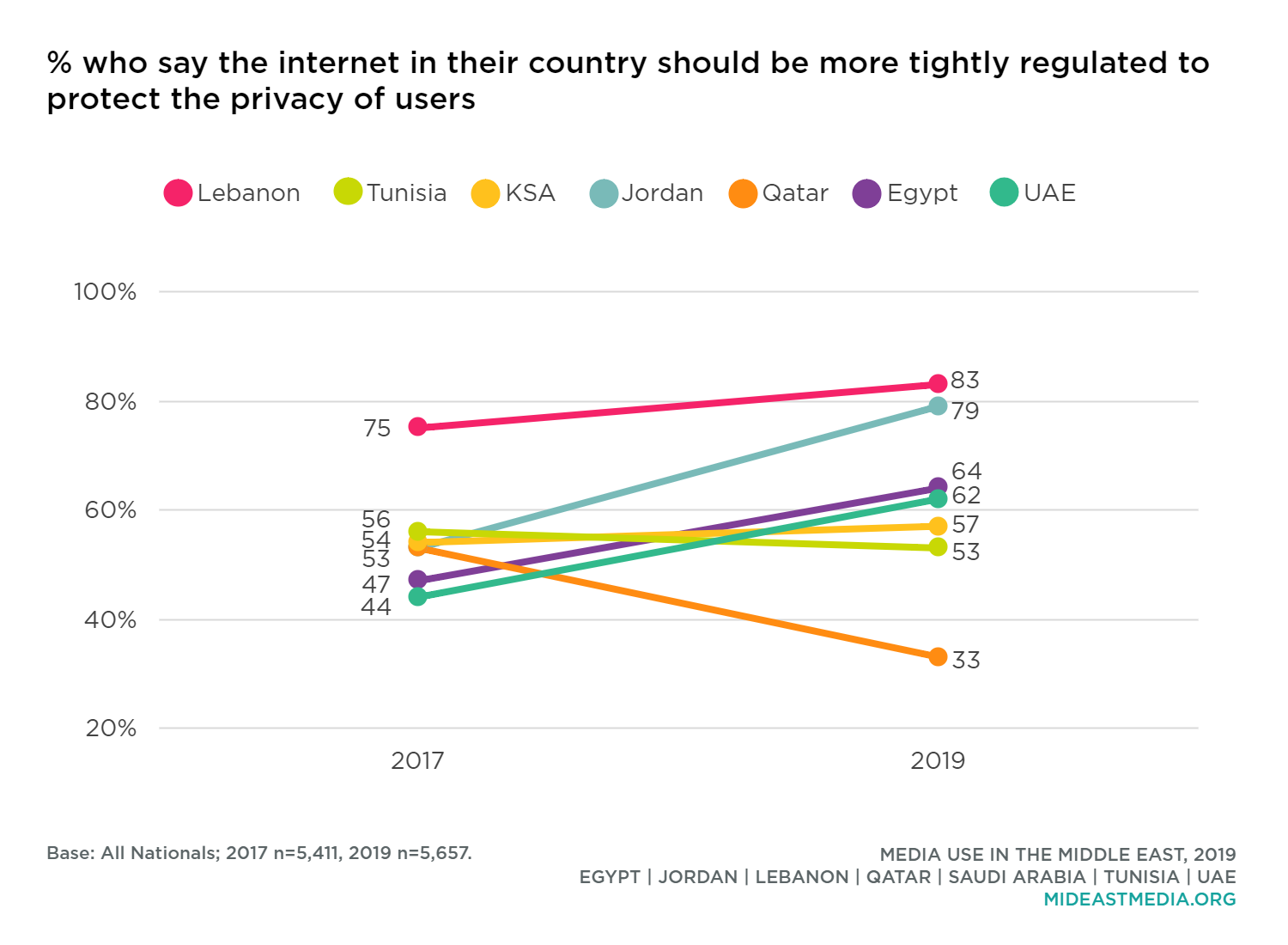
Younger nationals are more likely than older respondents to report changing their privacy settings (48% 18-24 year-olds, 44% 25-34 year-olds, 39% 35-44 year-olds, 27% 45+ year-olds, among those who have made changes). Older nationals, however, say they connect with fewer people on social media generally (24% 18-24 year-olds, 29% 25-34 year-olds, 33% 35-44 year-olds, 38% 45+ year-olds, among those who have made changes).
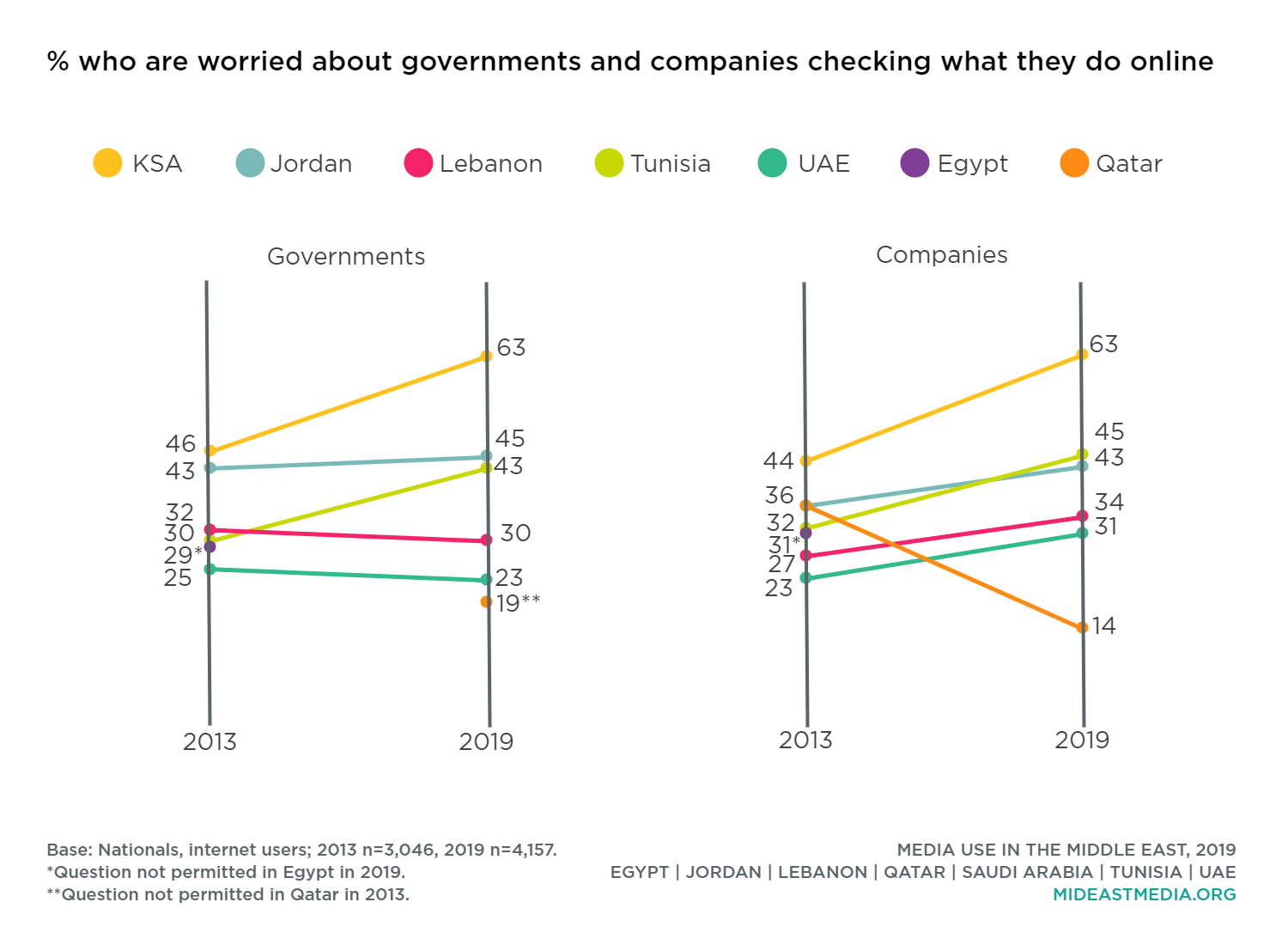
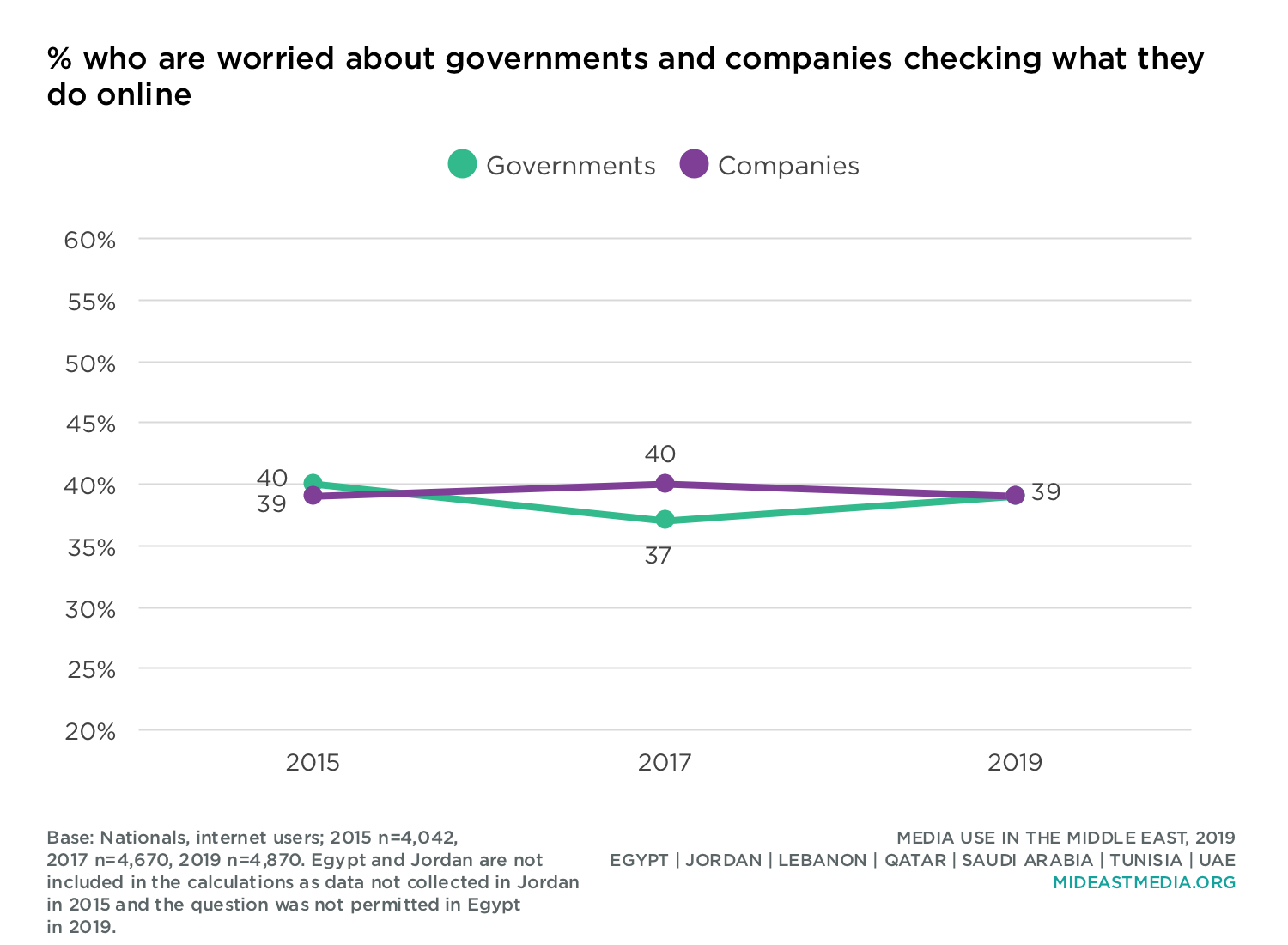
Internet users are just as worried about other internet users checking what they do online as they are about monitoring by companies and governments, and the former is a new question in 2019. The parity in concern about surveillance by governments, companies, and laypersons is consistent across countries. Additionally, on average, about half of internet users worry about companies using their personal information without their consent, ranging from one in five in Qatar to more than three in five in Saudi Arabia.
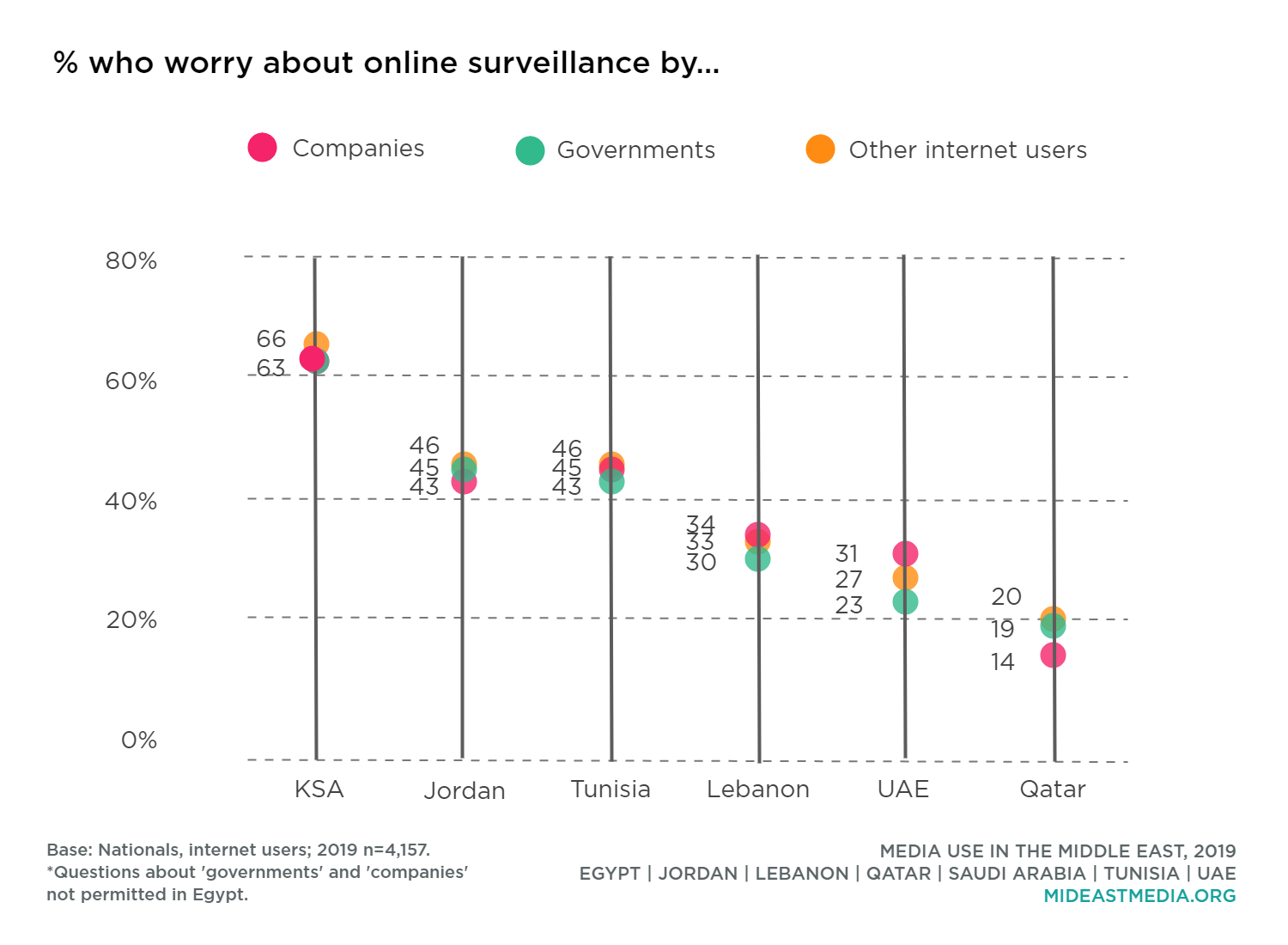

Privacy concerns may be spurring changes in digital behaviors. Between two and four in 10 nationals say they have changed their social media use due to privacy concerns. Behavior changes spiked from 2017 to 2018, and are now closer to, but still higher than the levels observed in 2017. Egypt is the only country that maintained the same percentage as 2018 saying they changed their social media behavior due to privacy concerns.
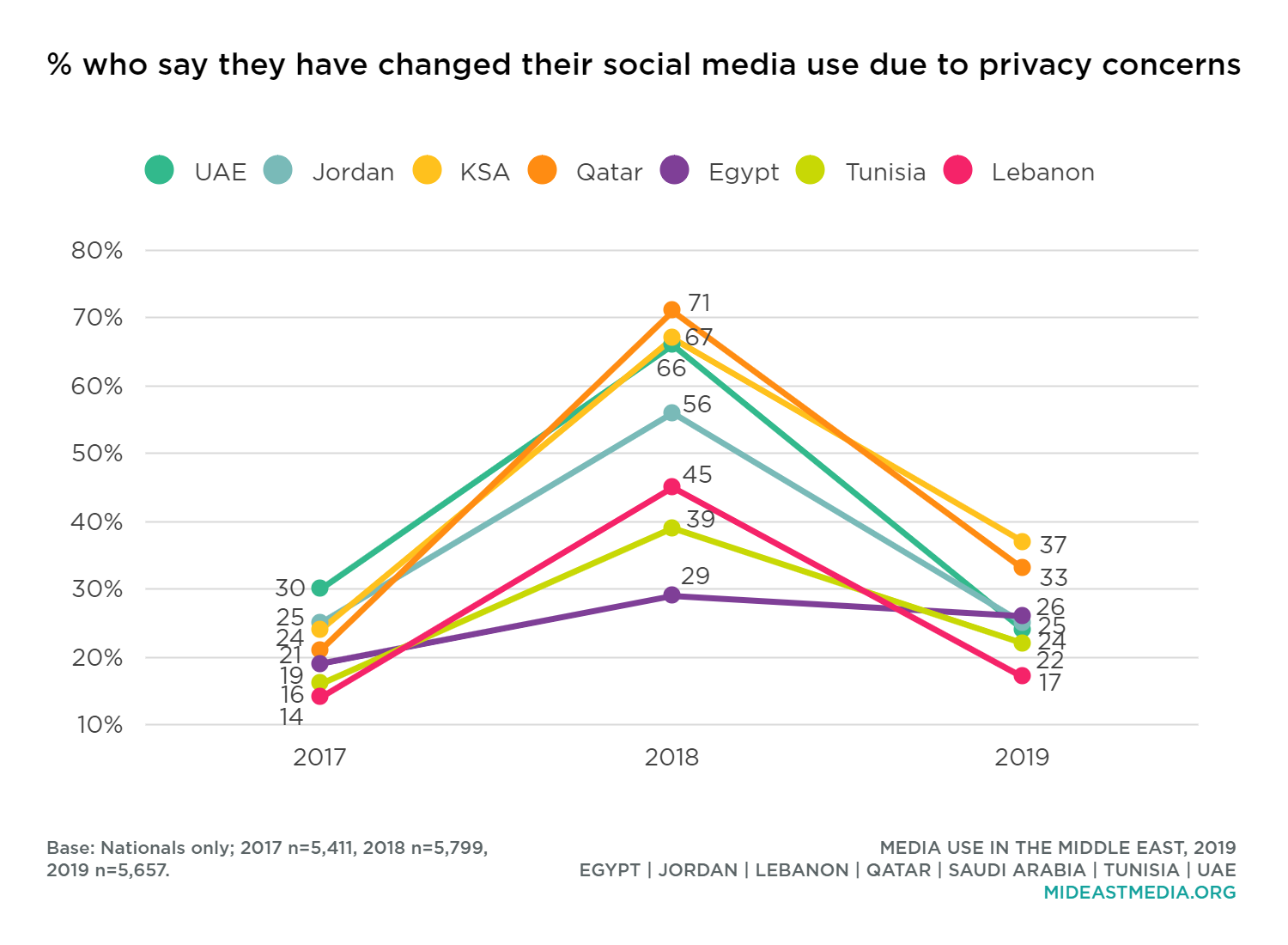
Internet users who worry about online surveillance by governments or companies are more likely than those who are not worried to change their social media use for privacy reasons (privacy concerns about governments checking have changed the way I use social media: 36% agree, among those worried vs. 20% among those not worried; companies checking: 37% among those worried vs. 18% among those not worried).
Internet users who said they changed social media behaviors for privacy reasons report a number of specific, corrective actions. Four in 10 have changed their privacy settings, three in 10 post less often or share less sensitive information, and nearly two in 10 have stopped using some services or stopped using their real name on certain social media platforms.
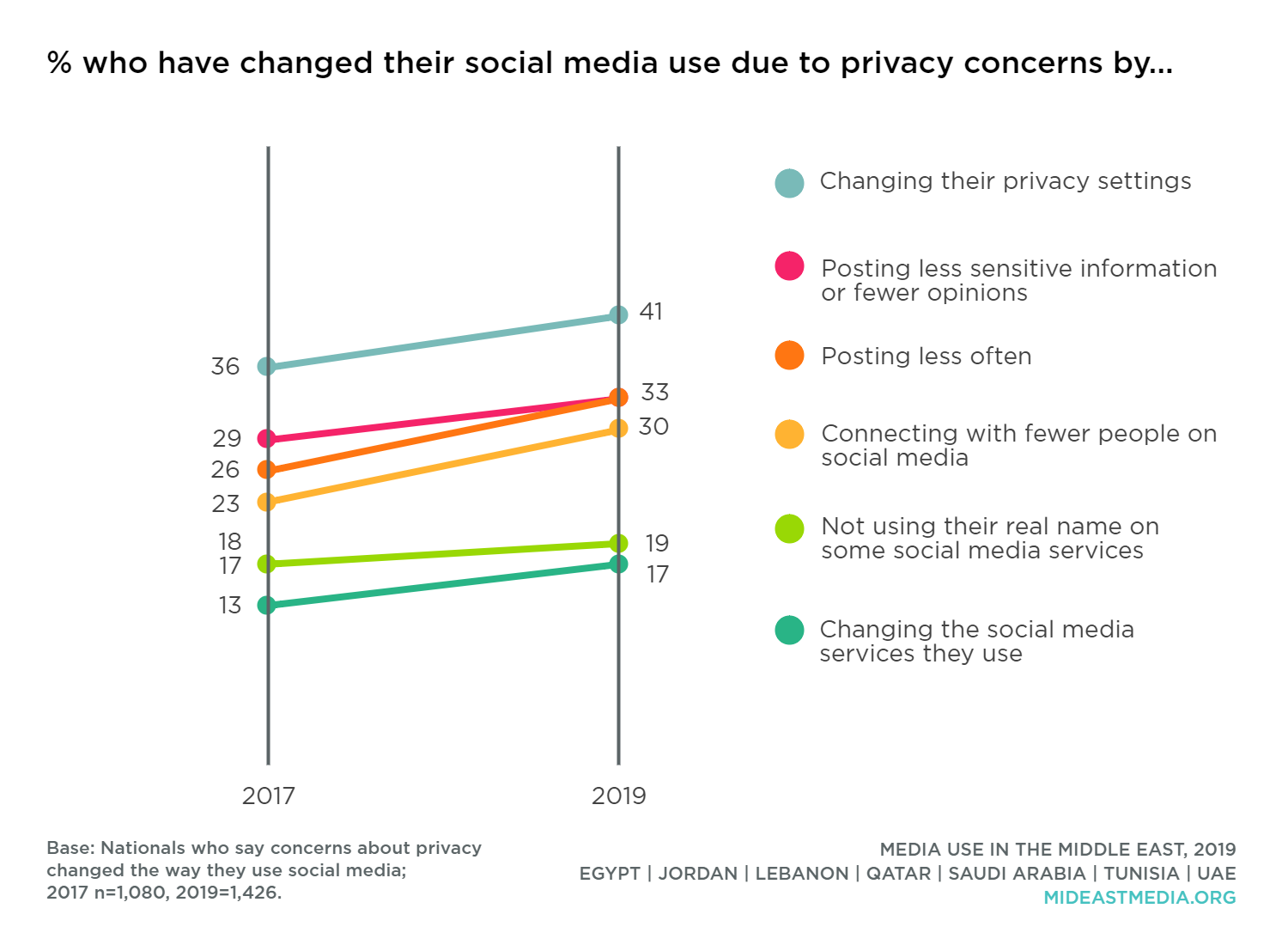
Thirty-two percent of nationals say WhatsApp is the platform affording the most privacy, far more than the percentages who named Facebook, Twitter, Instagram, or Snapchat as the most privacy-protective—and the margin is wide in most countries. Notably, nearly one in four (23%) nationals do not believe any social media platform provides privacy to users.
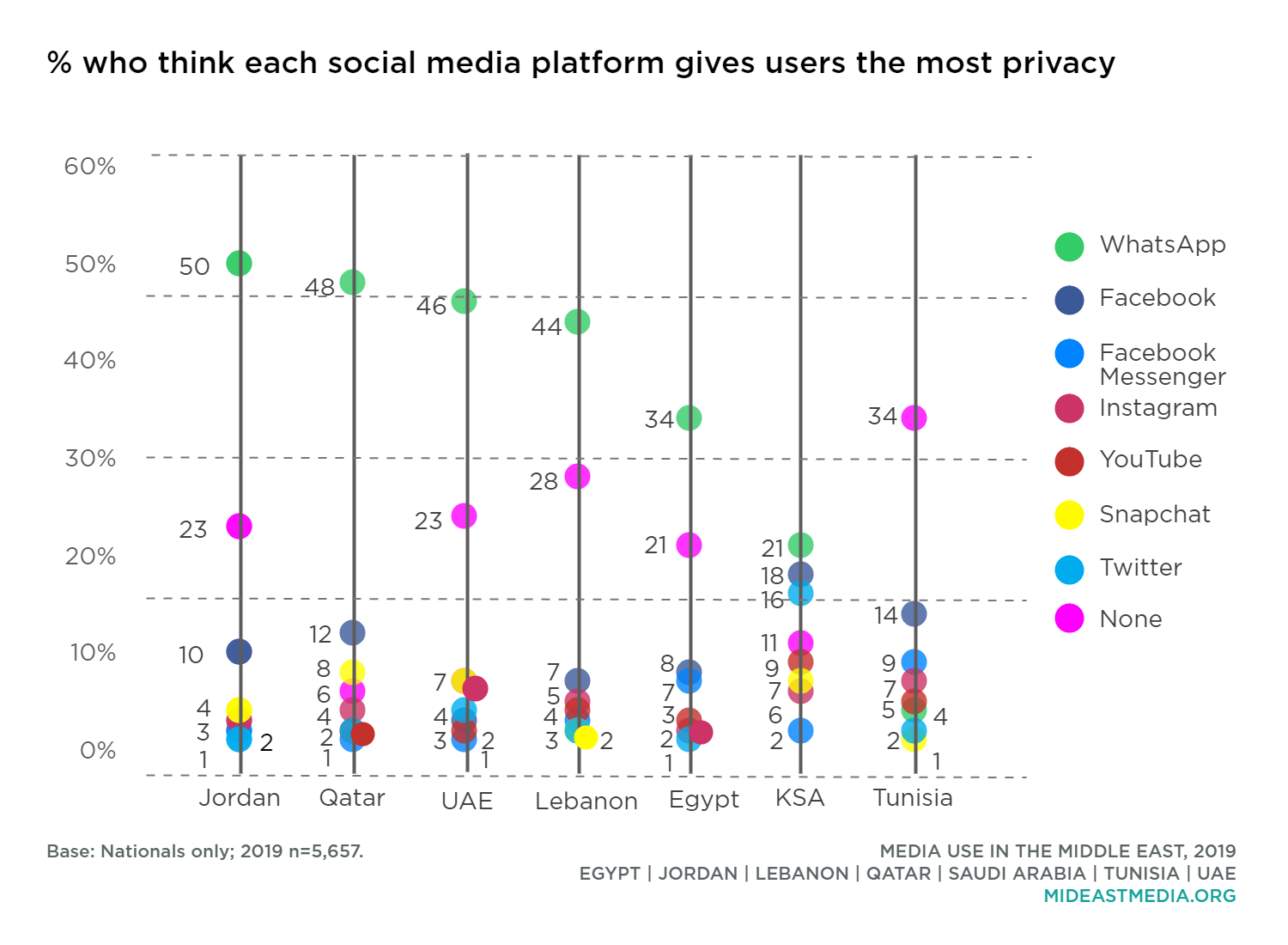
Increased VPN use is another way many Arab nationals increase privacy protection. While VPN use varies widely by country, VPN adoption rose in several countries in the last few years. Notably, more than half of Qataris now use a VPN, up dramatically since 2016. VPN use also grew in Jordan and Tunisia. This question was not asked in the UAE, where VPN use is illegal (and is prosecuted) and was not permitted by Egyptian authorities in 2019.
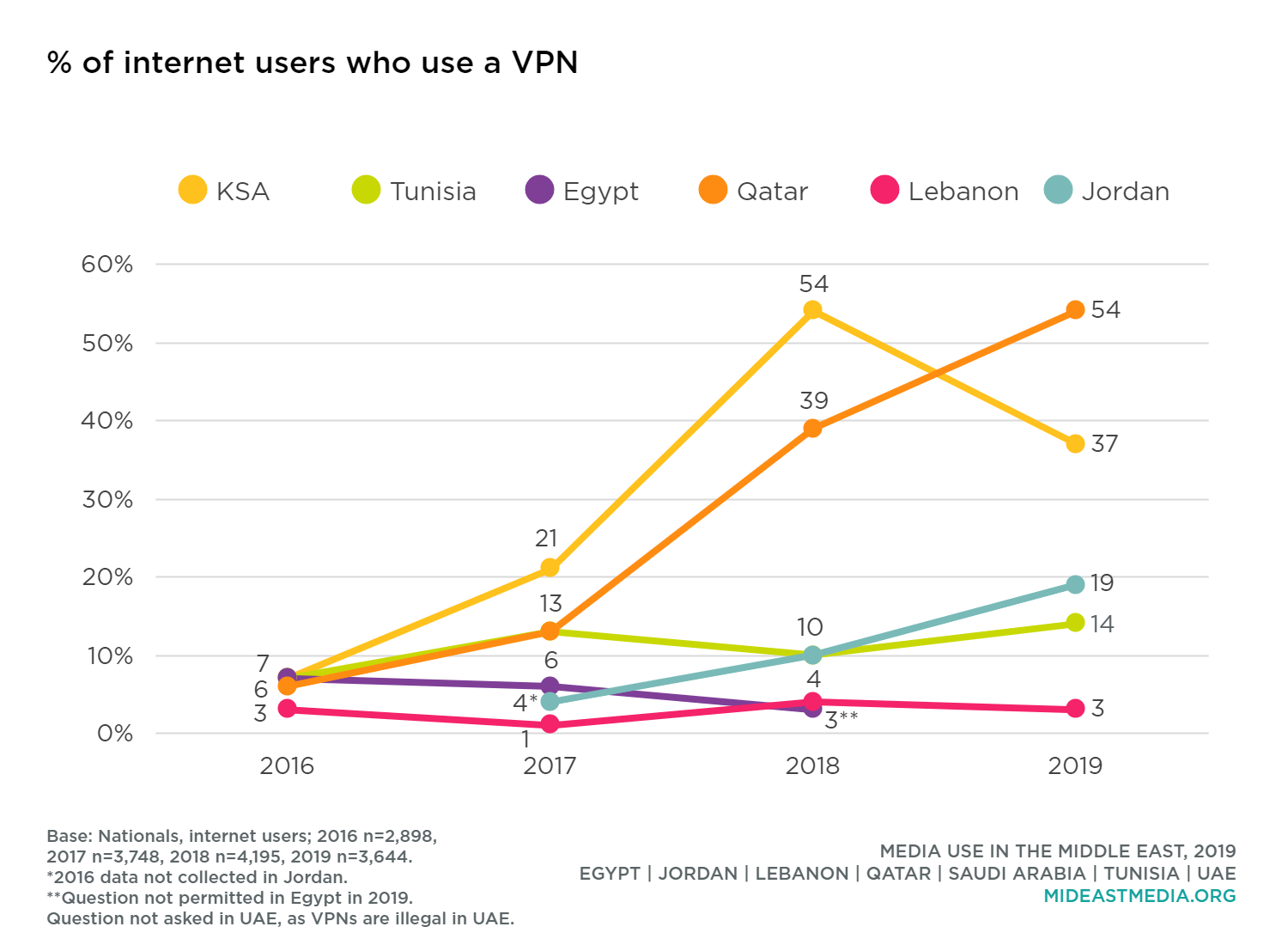
Those who worry about online surveillance by governments and companies are more likely to use a VPN than those who are not worried, which may suggest respondents don’t only use VPNs to access otherwise unavailable entertainment content, but also to disrupt would-be surveillance (use a VPN: 21% among those worried vs. 15% among those not worried about government surveillance; 20% among those worried vs. 16% among those not worried about corporate surveillance).
Still, privacy concerns have not obviated sharing potentially sensitive personal material. Half of nationals share personal photos and videos on social media—including ones they are in—ranging from three in 10 in Qatar and Tunisia to nearly seven in 10 in Lebanon.
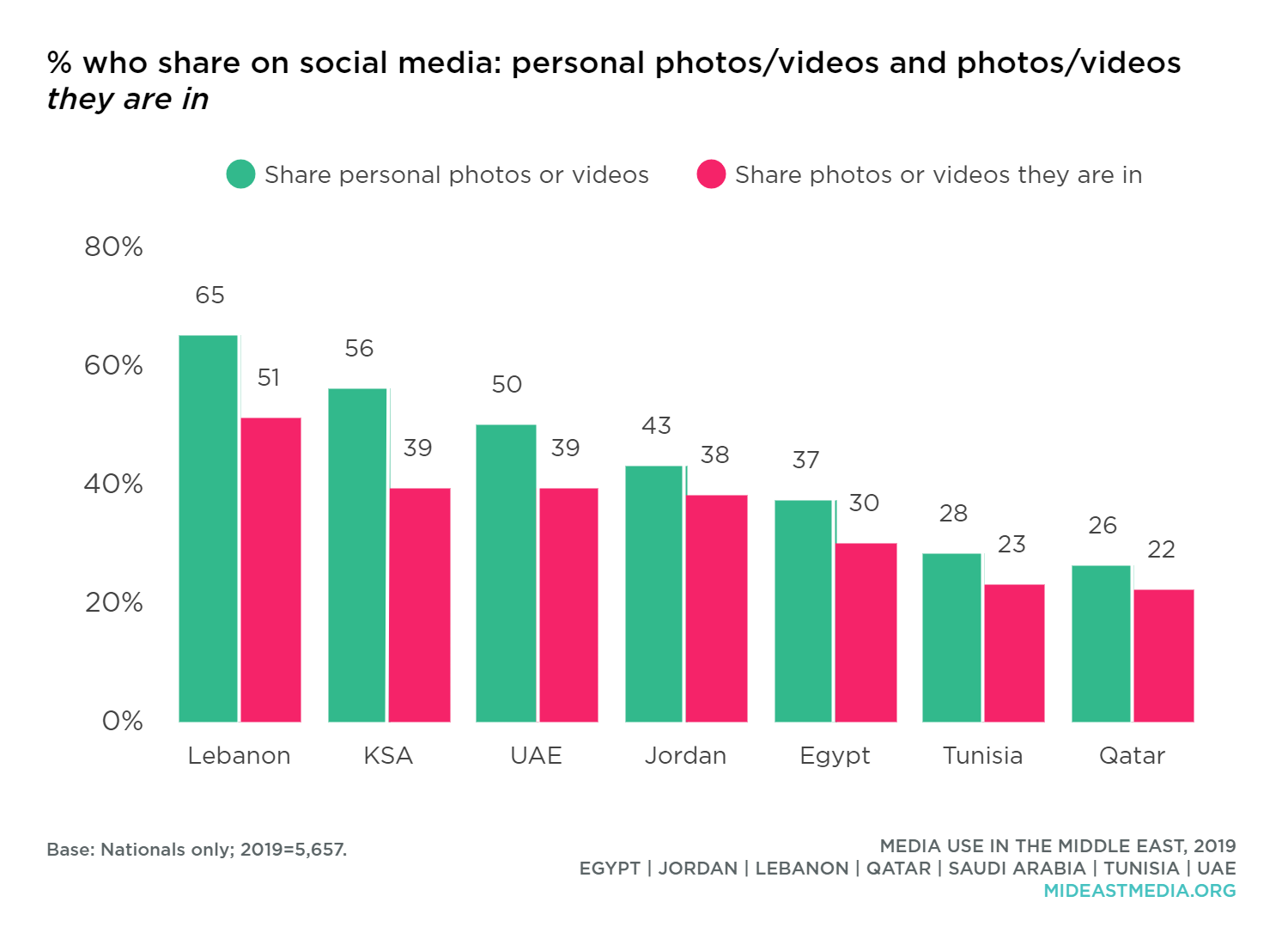
Twice as many of the youngest respondents (18-24) share personal photos and videos on social media—including ones they are in—than the oldest cohort (61% 18-24 year-olds, 55% 25-34 year-olds, 47% 35-44 year-olds, 30% 45+ year-olds).